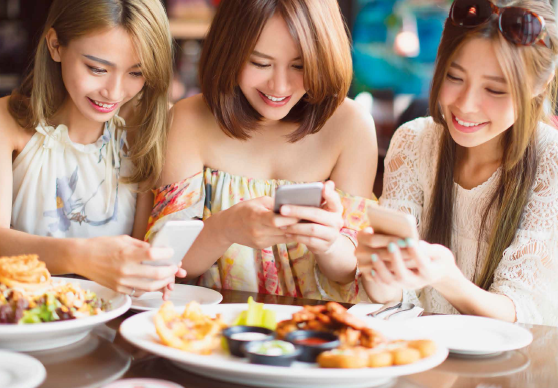In case you haven’t heard, phubbing is the act of snubbing someone in favour of your mobile phone – and it is becoming increasingly common.



TEXT ESTELLE LOW PHOTOS 123RF.COM
The term phubbing (pronounced far-bing) was coined in 2012 as part of a campaign by Macquarie Dictionary, and has been widely used since then, thanks to the growing smartphone usage.
Remember when your friend kept looking at her phone while you were out shopping with her? Or when she couldn’t stop checking for messages over dinner? Whether or not phubbing is justified – perhaps you have an urgent message to reply to, or you’re trying to avoid an awkward conversation – it is considered rude most of the time.
A recent large-scale survey by Singapore Polytechnic students found that a majority of young adults in Singapore aged 15 to 35 perceive phubbing to be harmful to relationships with their partner, friends and family. The effect seems to be the greatest for romantic relationships.
Of the 785 interviewed, 61.7 per cent felt that phubbing deteriorates the quality of conversation, while 58.2 per cent believed phubbing negatively affects their relationship with their partner.
And here’s the interesting part: Men are more particular about phubbing than women are. According to the survey, 62.8 per cent of males agreed that phubbing worsens their relationship with their partner, compared to 54.5 per cent of females.
So the next time you’re out with your man (or anyone else you value), it’s best to leave your phone in the bag – unless you have established a mutual phubbing ‘protocol’, like if everyone uses their phones at a specified time, or if you know for sure that they wouldn’t hold it against you.























